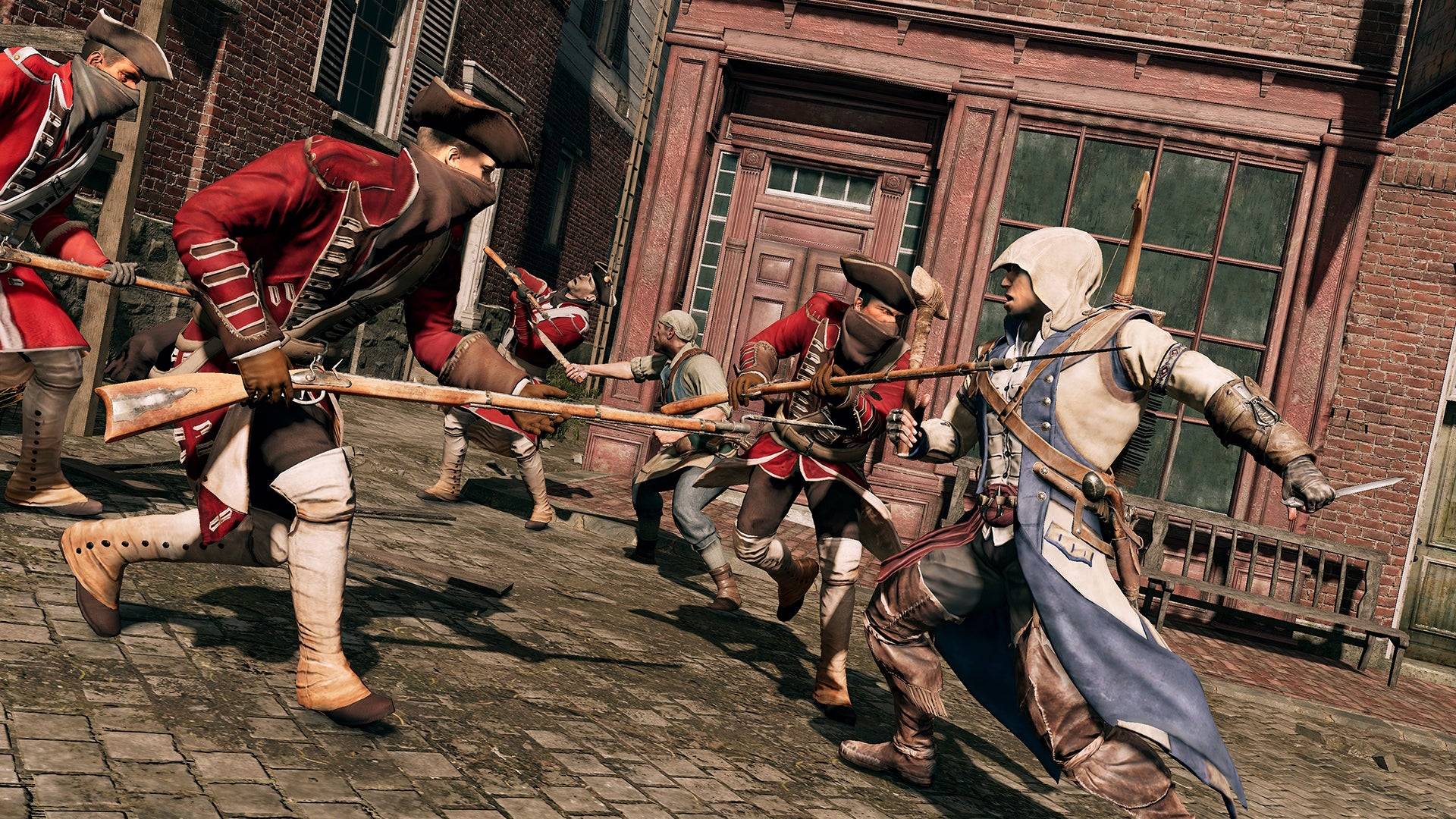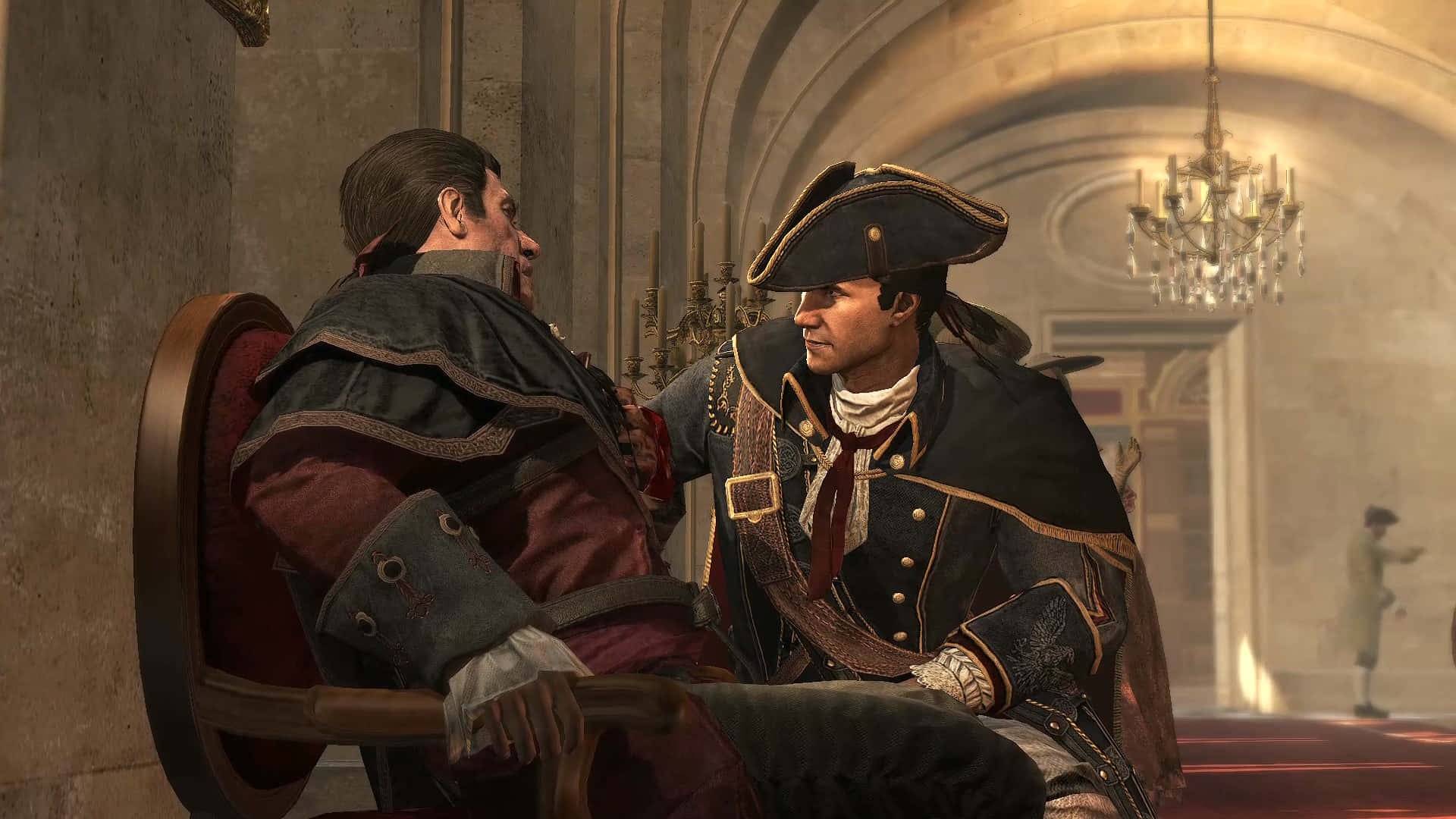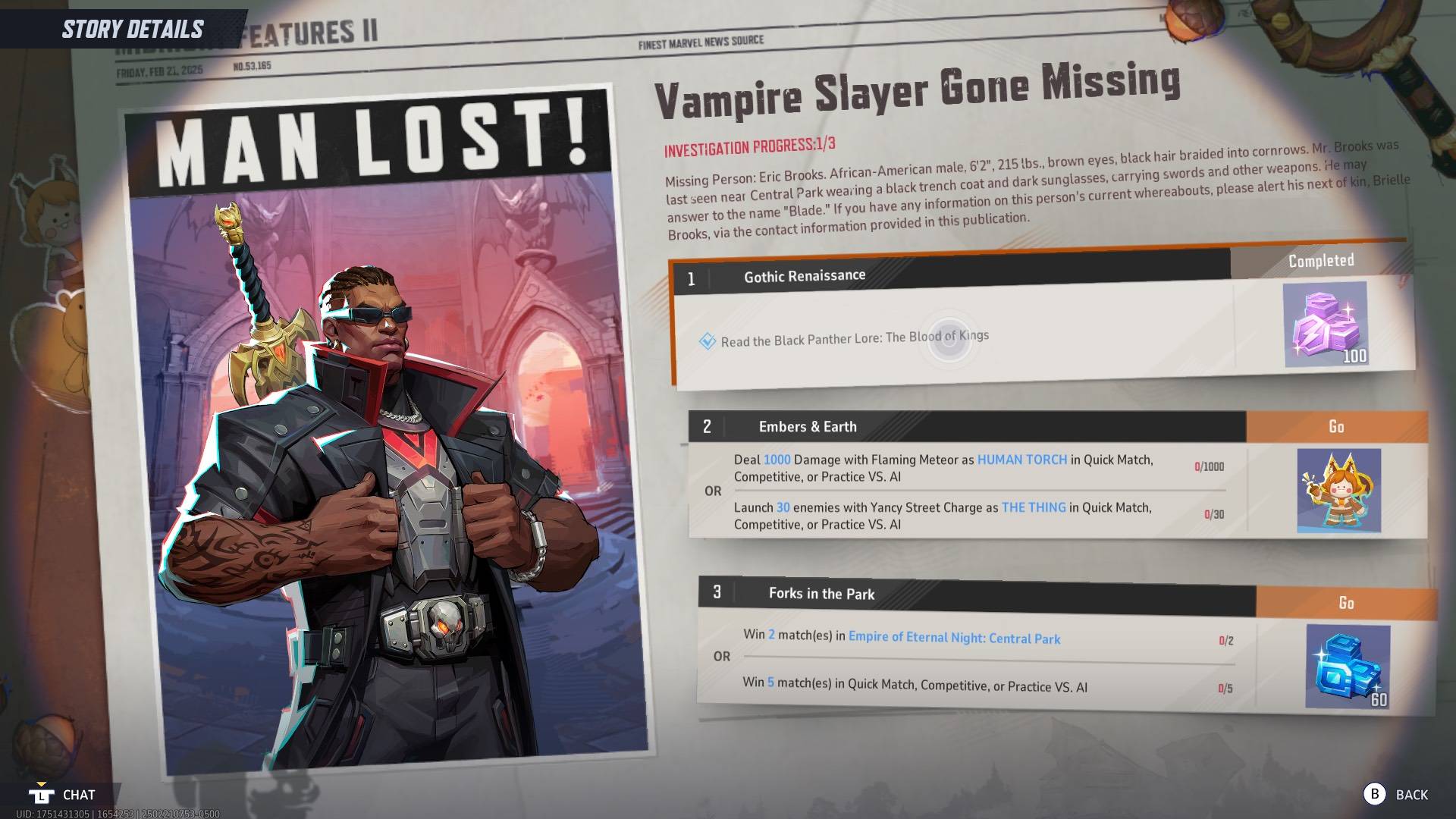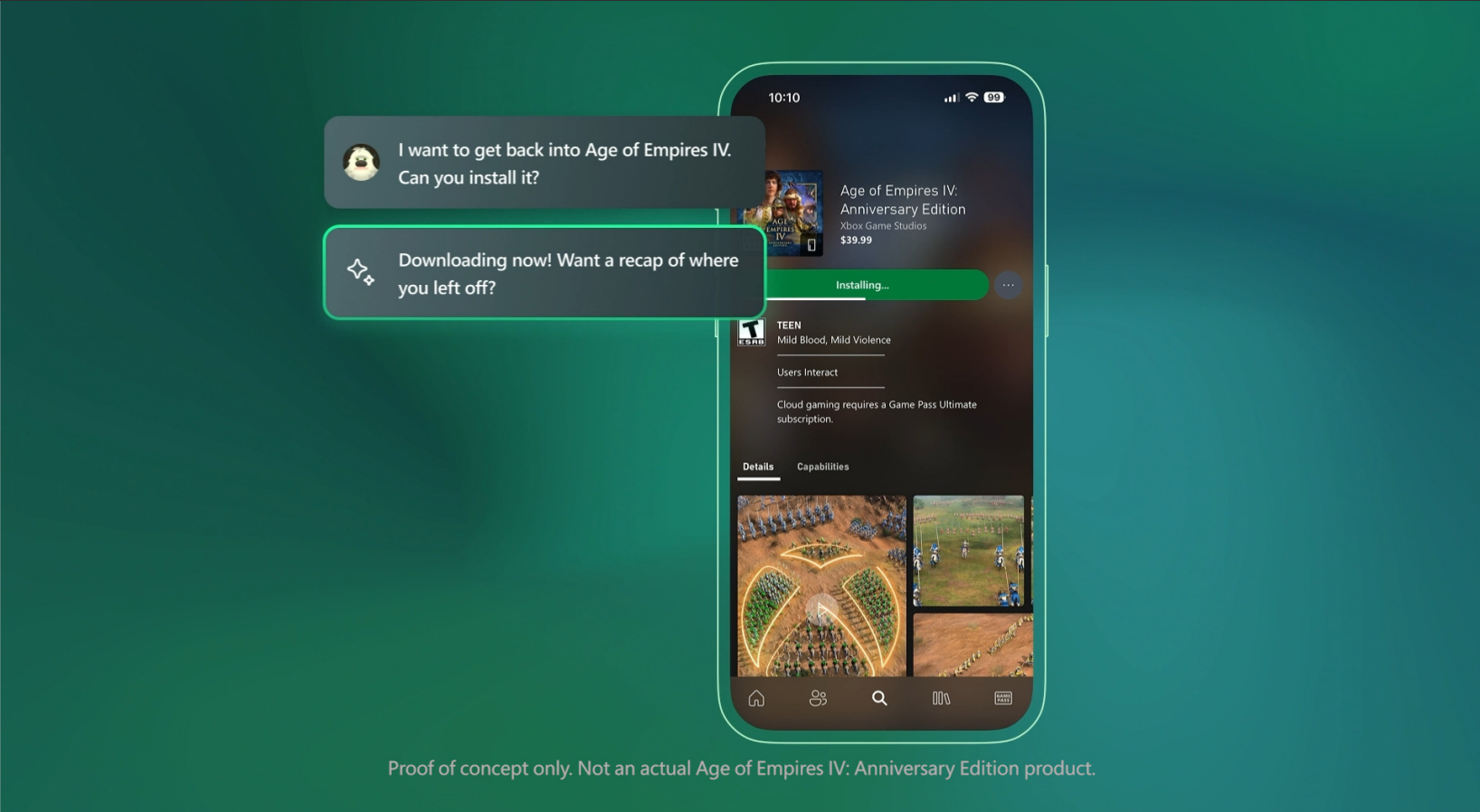Why Assassin's Creed 2 and 3 Had the Best Writing the Series Has Ever Seen
One of the most memorable moments in the entire Assassin's Creed series occurs early in Assassin's Creed III. Haytham Kenway, having gathered his supposed assassins in the New World, initially appears heroic. He wields a hidden blade, possesses the charisma of Ezio Auditore, and even rescues Native Americans from prison, battling British soldiers. However, his utterance of the Templar phrase, "May the Father of Understanding guide us," reveals a shocking truth: we've been following the Templars all along.
This surprising twist exemplifies Assassin's Creed's untapped potential. The first game introduced an intriguing premise—find, learn about, and eliminate targets—but fell short narratively, with both Altaïr and his victims lacking personality. Assassin's Creed II improved this by introducing the iconic Ezio, but its adversaries remained underdeveloped, Cesare Borgia in Assassin's Creed: Brotherhood being a prime example. Only in Assassin's Creed III, set during the American Revolution, did Ubisoft dedicate equal effort to developing both hunter and hunted, creating a seamless narrative flow and a masterful balance of gameplay and story—a feat yet unmatched.

While the current RPG era is generally well-received, many articles, videos, and forum posts suggest Assassin's Creed is in decline. The reasons are debated: unrealistic premises involving gods like Anubis and Fenrir; romance options; or, controversially, the use of a real historical figure like Yasuke in Assassin's Creed: Shadow. However, I believe the decline stems from the series' abandonment of character-driven storytelling, lost within sprawling open worlds.
Over time, Assassin's Creed has incorporated RPG and live-service elements: dialogue trees, XP, loot boxes, microtransactions, and gear customization. Yet, larger installments feel emptier, not just due to numerous side quests, but also in their storytelling.
While Assassin's Creed Odyssey boasts more content than Assassin's Creed II, much feels underdeveloped. The player choice system, intended to enhance immersion, often has the opposite effect. Lengthy scripts, accounting for multiple scenarios, lack the polish of earlier games with more limited interactions. The focused scripts of the action-adventure era created sharply defined characters, unaffected by player choices demanding compassion or brutality.

The writing has also suffered in other ways. Modern games often present a simplistic Assassins-good/Templars-bad dichotomy, whereas earlier games explored the moral ambiguity. In Assassin's Creed III, defeated Templars challenge Connor's beliefs. William Johnson suggests the Templars could have prevented genocide; Thomas Hickey criticizes the Assassin's mission; Benjamin Church highlights the subjectivity of morality; and even Washington's actions are revealed to be morally questionable. Haytham challenges Connor's faith in Washington, foreshadowing the latter's potential tyranny. The game ends with more questions than answers, enhancing its narrative strength.
AnswerSee ResultsThe popularity of "Ezio's Family" from Assassin's Creed II's soundtrack highlights the emotional resonance of the PS3-era games. Assassin's Creed II and Assassin's Creed III were character-driven, focusing on personal trauma rather than solely on setting. While I appreciate the improved world-building and graphics of modern games, I hope the series will return to the focused storytelling that made it so captivating. Sadly, in today's market, such a focused approach may not be considered financially viable.
-
1

Every Pokémon Game on the Nintendo Switch in 2025
Feb 25,2025
-
2

Roblox: Trucking Empire Codes (January 2025)
Mar 05,2025
-
3
![Anime Vanguards Tier List – Best Units For Each Gamemode [UPDATE 3.0]](https://images.gzztb.com/uploads/35/17376012656791b0f12fa1c.jpg)
Anime Vanguards Tier List – Best Units For Each Gamemode [UPDATE 3.0]
Feb 27,2025
-
4

Poring Rush, the casual battling spin-off from hit MMORPG Ragnarok Online, is out now
Dec 30,2024
-
5

How To Read Black Panther Lore: The Blood of Kings in Marvel Rivals
Mar 01,2025
-
6

Nvidia RTX 5090 Specs Leak: Rumor Confirmed?
Mar 14,2025
-
7

Ragnarok X: Next Gen - Complete Enchantment Guide
May 25,2025
-
8

Stardew Valley: A Complete Guide To Enchantments & Weapon Forging
Mar 17,2025
-
9

Microsoft to Integrate Copilot AI into Xbox App and Games
May 21,2025
-
10

Hearthstone has kicked off the Year of the Raptor with a myriad of new content
Mar 16,2025
-
Download

The Golden Boy
Casual / 229.00M
Update: Dec 17,2024
-
Download

Niramare Quest
Casual / 626.43M
Update: Feb 21,2023
-
Download

POW
Casual / 38.00M
Update: Dec 19,2024
-
4
Mother's Lesson : Mitsuko
-
5
Gamer Struggles
-
6
How To Raise A Happy Neet
-
7
Poly Pantheon Chapter One V 1.2
-
8
Dictator – Rule the World
-
9
Strobe
-
10
Livetopia: Party














